Recap: A Conversation on Date, Dating, and Digital Dating (10 Aug 2020)
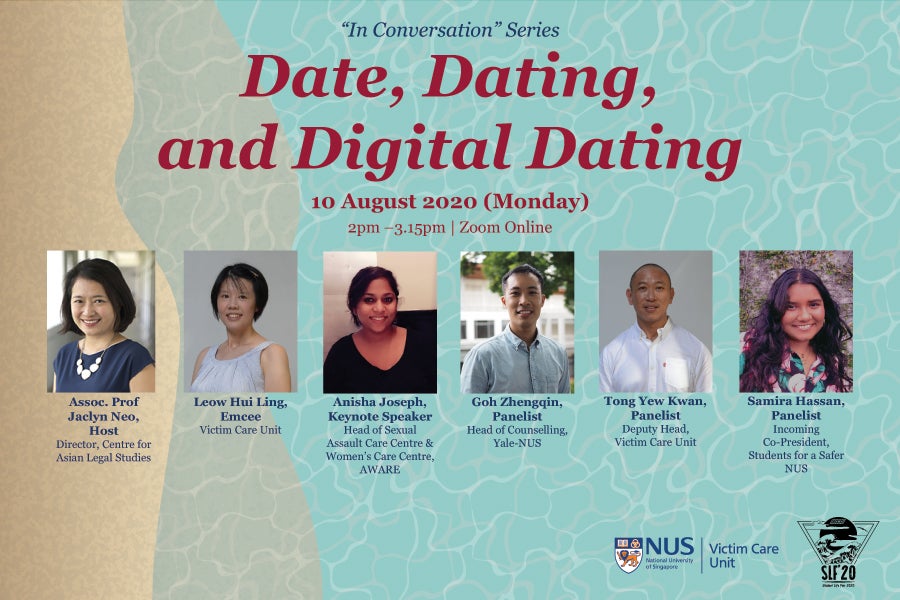
6-7 out of 10. This was what most of the attendees of the Victim Care Unit’s (VCU) conversation on Date, Dating, and Digital Dating think is the proportion of undergraduates who are either attached or actively pursuing a relationship. This is consistent with the observations made in a Straits Times article, which cited universities as being “the best place to strike up friendship and partnerships”. Attendees were also polled about what was most important to them when seeking a long-term partner. On the top of this list were: respect, trust and honesty, and open communication.
But being clear of what people wanted in a relationship did not make dating on campus any easier. For instance, how can one start talking about consent with their partner? Would they find the topic boring? What does it mean to “cross the line”?
Kick-starting this first episode of VCU’s In-Conversation…” series are host Associate Professor Jaclyn Neo(Director of Centre for Asian Legal Studies), keynote speaker Ms. Anisha Joseph (Head of Sexual Assault Care Centre & Women’s Care Centre, Association of Women for Action and Research (AWARE)), and panelists Mr. Goh Zhengqin (Head of Counselling, Yale-NUS), Dr. Tong Yew Kwan (Deputy Head of VCU) and Ms. Samira Hassan (Incoming Co-President of Students for a Safer NUS).
"We need to talk about boundaries" - Keynote by Ms. Anisha Joseph
If you’re confused about dating on campus, you’re not alone,” assured Ms. Anisha Joseph. She stated that this was not because what constitutes consent today was grey, but that consent was rarely talked about. This followed a finding from a recent survey on the youths’ perception of sexual consent by AWARE and Ngee Ann Polytechnic, where only slightly more than half of the respondents had discussed sexual consent with their partners.
Calling for the need to “Create a Culture of Consent on Campus,” Ms. Joseph gave pointers on how one could know that they have crossed the line. “In order to build a culture of consent, we need to talk about boundaries,” Ms Joseph emphasised. She then shared some examples of what these boundaries looked like.
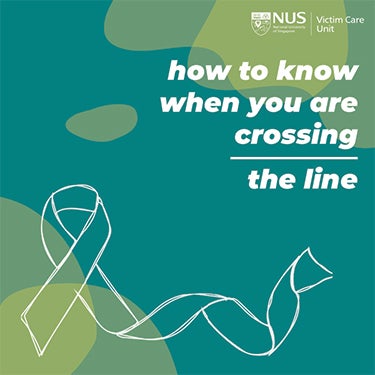
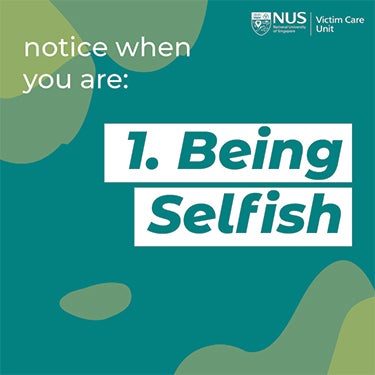
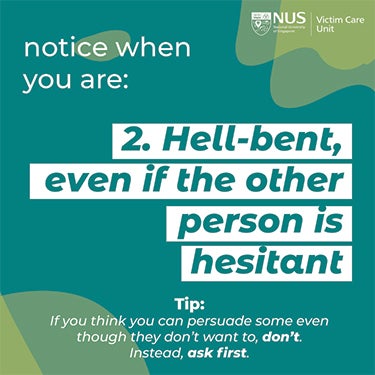
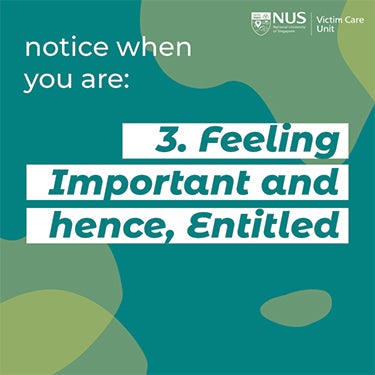
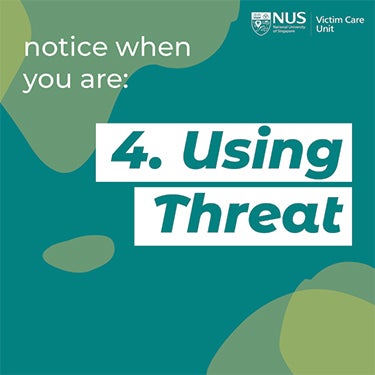
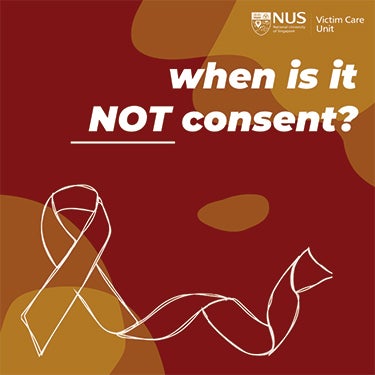
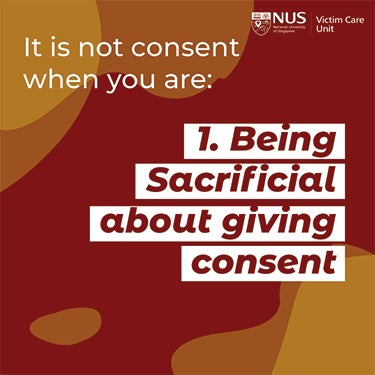
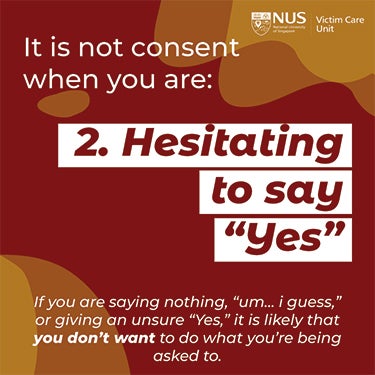
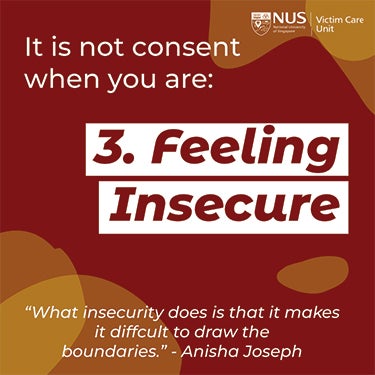
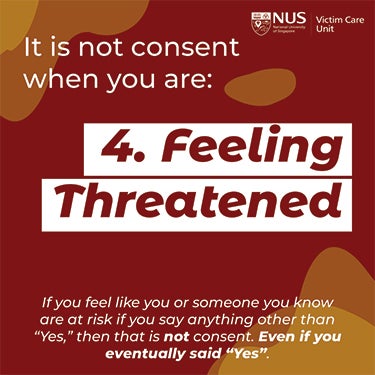
Panel Discussion
The panel discussion covered a broad range of topics, from what someone could do when they find themselves or someone they know to be in an unhealthy relationship, to how conversations on dating and consent can be encouraged on campus.
Weighing in on the engagement of casual hookups – or hookup culture – in Singapore, Mr. Goh Zhengqin explained that hookups can make people feel more desirable and validated. Echoing Ms. Joseph, he stressed the importance of consent: “If there is hesitancy on your part, then what you should be saying is, “No.” […] You decide what you want to do with your body.”
Mr. Goh also touched on what some green and red flags in a relationship might be. While green flags include qualities like mutual respect and mutual giving, red flags include the lack or absence of open communication and mutual trust, and the inability to forge deep connections.
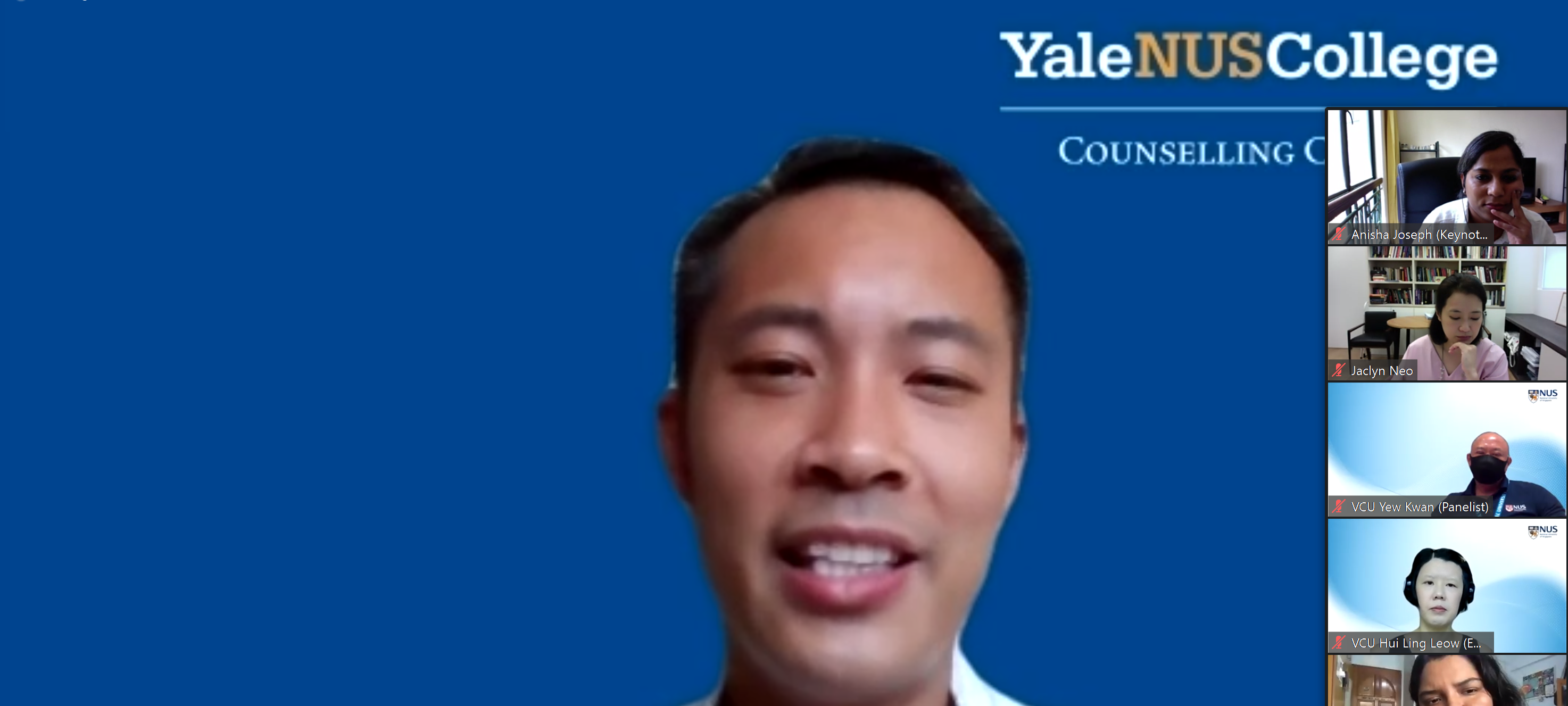
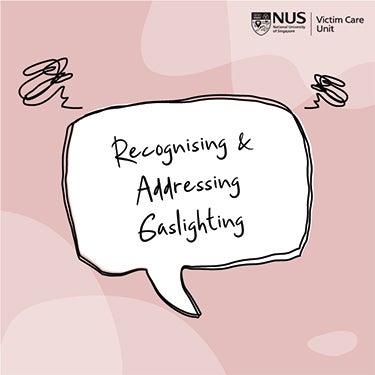
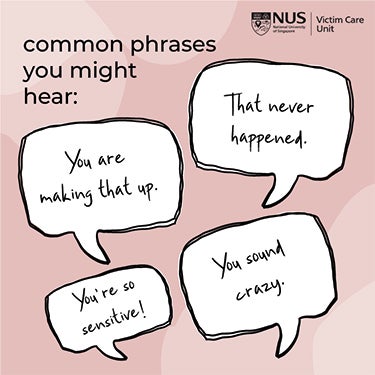
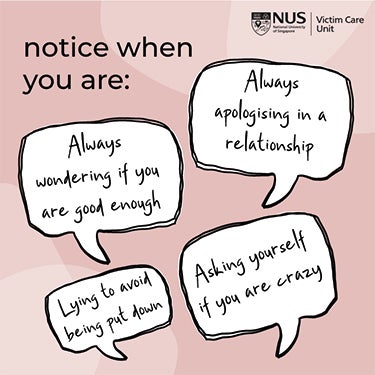
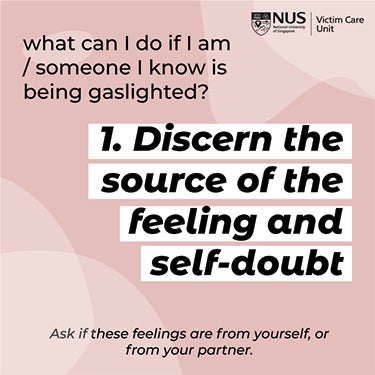
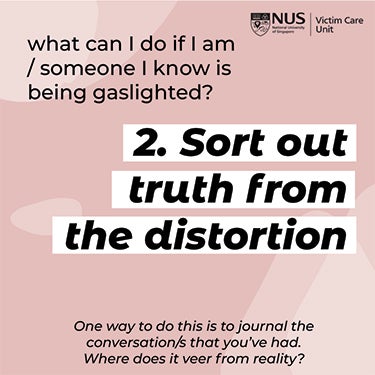
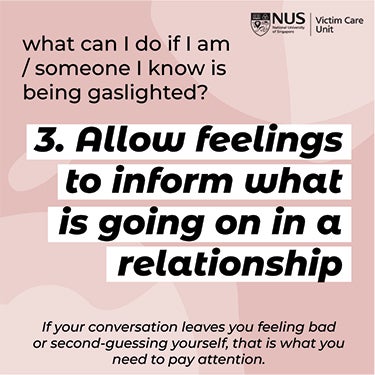
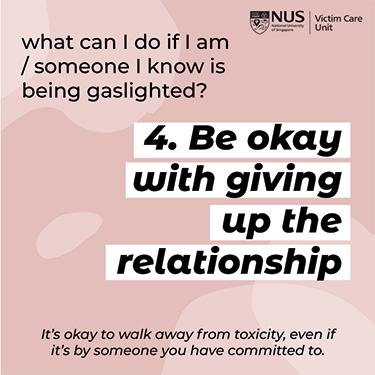
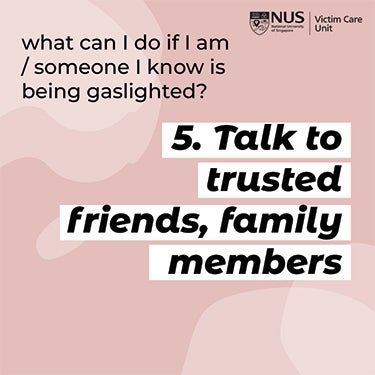
When asked about what students can do if they feel victimised, Dr. Tong Yew Kwan assured students that they were not alone and that VCU is here to help. Apart from providing immediate emotional and practical support, he also shared that VCU Care Officers would explore options and develop safety plans in tandem with the affected student.
Dr. Tong also shared some tips on how one could help other victims and survivors of sexual misconduct:
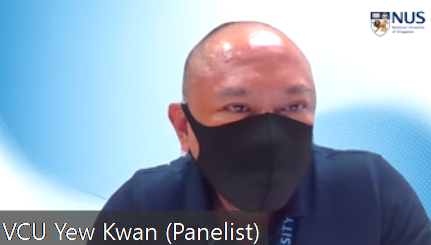
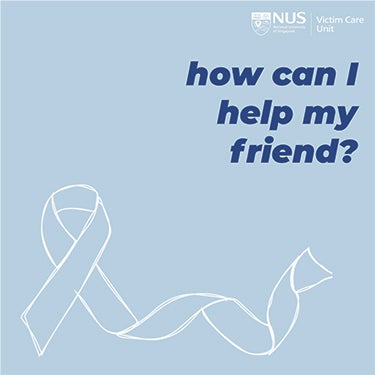
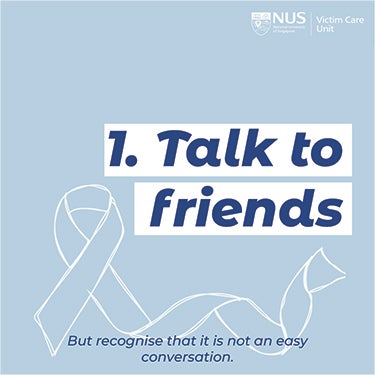
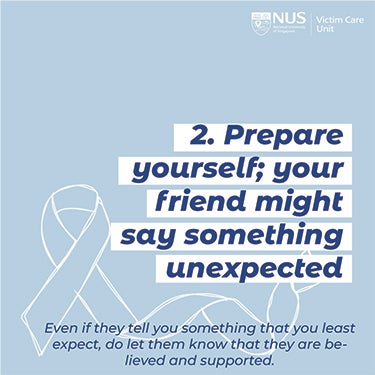
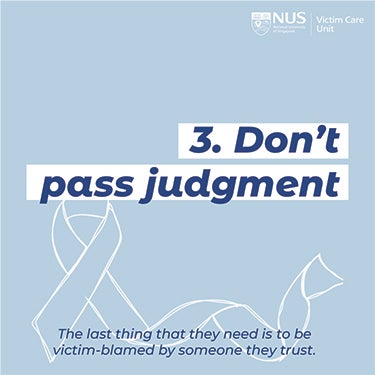
Responding to Assoc. Prof Jaclyn Neo’s question on what advice he would give to someone who is being harassed by their ex-partner be it online or offline, Dr. Tong highlighted that the Protection from Harassment Act (POHA) is one form of protection measure that aims to curtail continuous unwanted behaviour and/or communication from harassers.
He shared that something similar also exists on campus in the form of a “No-Contact Order” (NCO). That said, he recognised that such interventions could be difficult remedies for some survivors, stressing in particular the under-reporting of cases among male students as it runs counter with stereotypical masculine norms.
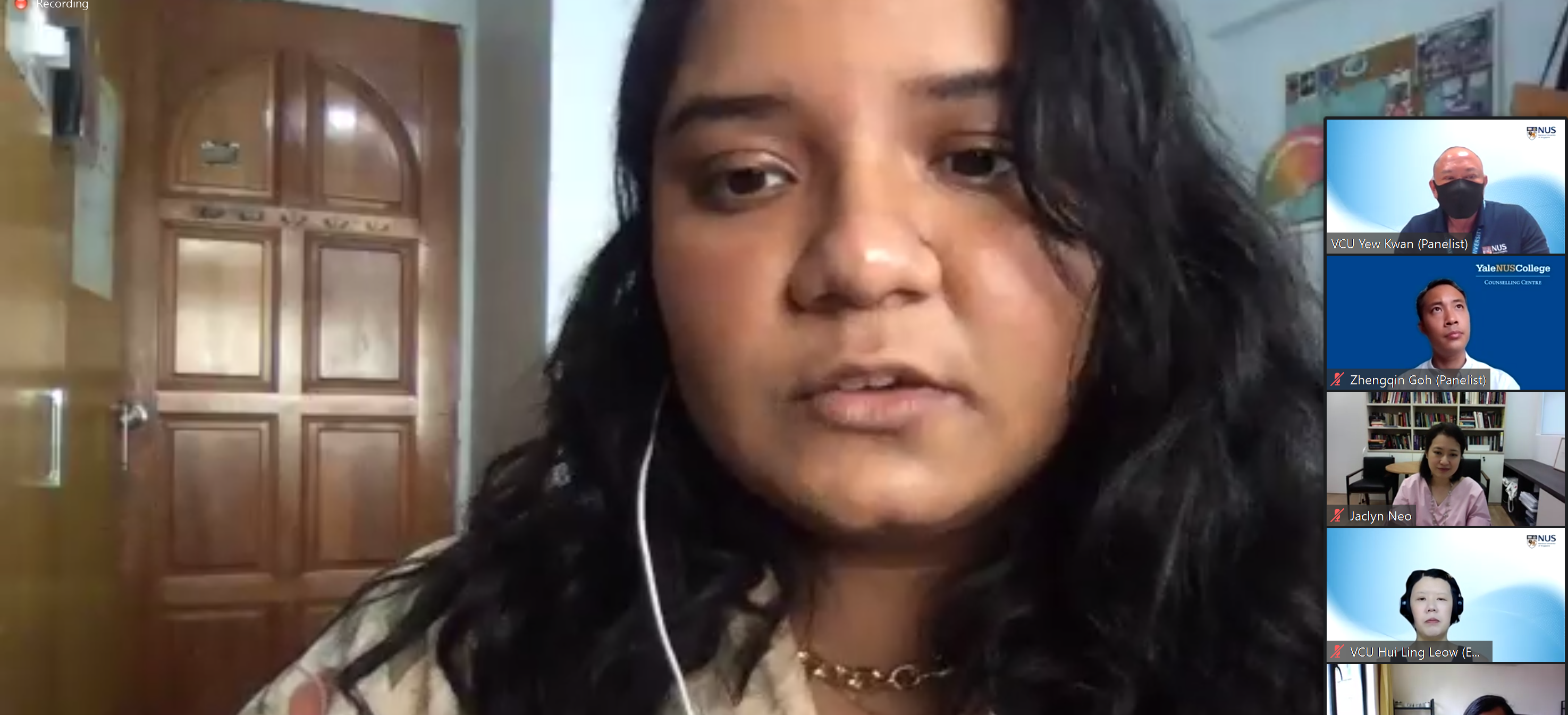
Drawing from her experience and observations as an undergraduate student in NUS, Ms Samira Hassan weighed in on NUS’s Respect and Consent (R&C) module as well as the broader campus climate. “We need a syllabus, not just one module,” she stressed. She added that more needs to be done to reach out to others who have either not learned about such topics or are averse to them.
Questions from the Floor
Attendees asked about how one should approach the topic of sex and consent with a potential partner, especially if one is from a different culture. “Embrace the awkwardness,” said Ms. Joseph, adding on that there is “nothing wrong with being awkward.”
She assured attendees that despite the initial awkwardness, such conversations will become more increasingly normal and natural. In the same vein, Mr. Goh shared that one should just seek consent at every step of the way.
Concurring with these two speakers, Dr. Tong shared that being comfortable with articulating boundaries can help those romantically involved to develop mutual understanding of what consent and being in a relationship means.
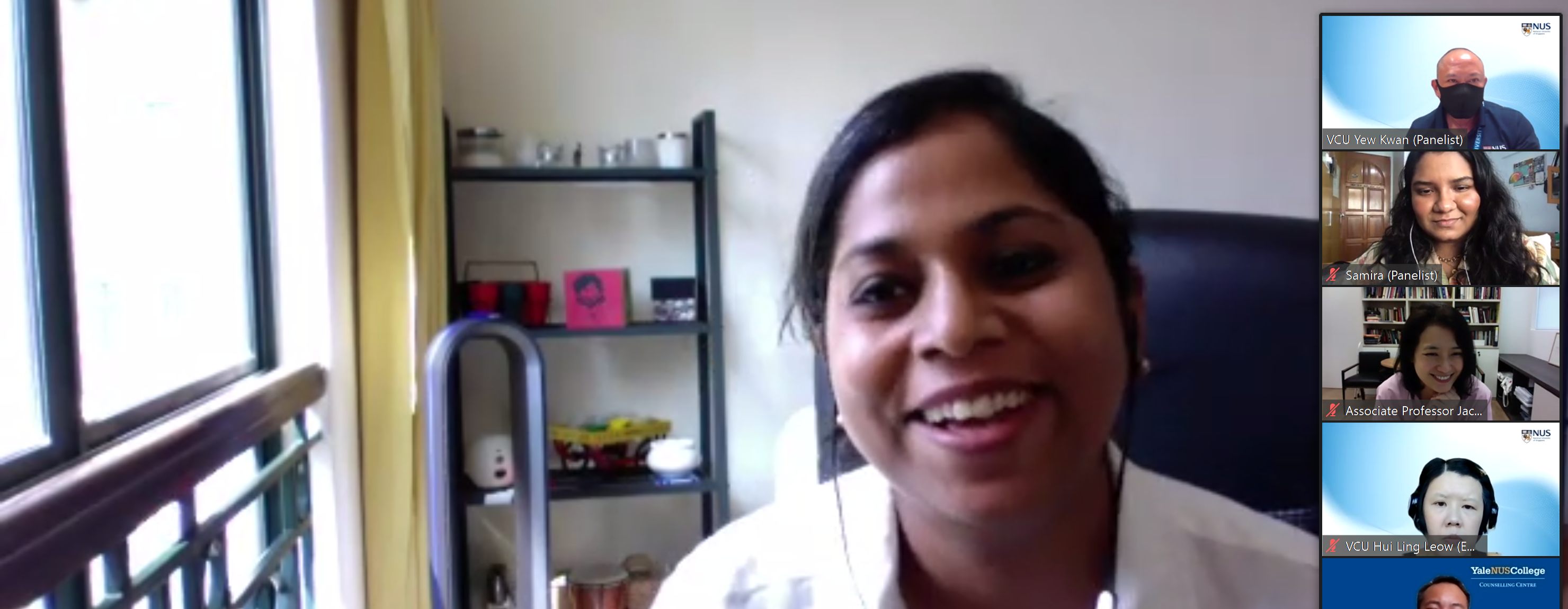
To wrap up the session, the speakers addressed one last question: What if asking for consent is considered non-spontaneous or if a potential partner finds it too boring?
Mr Goh shared that it doesn’t have to be boring and that it can actually be fun to have that conversation. He also stressed that the conversation about consent does not stop in dating relationships and that consent should be sought in marriage as well.
Chiming in, Ms Joseph reminded attendees that at the end of the day, “It is not about making it fun but making it normal. We need to normalise such conversations.”
If you or someone you know is affected by sexual misconduct, please reach out to NCU for support by calling our sexual misconduct helpline (+65 6601 4000) or emailing us at ncu_help@nus.edu.sg
NUS Care Unit
- University Health Centre,
- 20 Lower Kent Ridge Road,
- #B1-09, Singapore 119080
- For general enquiries:
- +65 6601 3155
- ncu_admin@nus.edu.sg
- Office hours:
Monday - Friday: 9am - 5pm - Website Feedback

